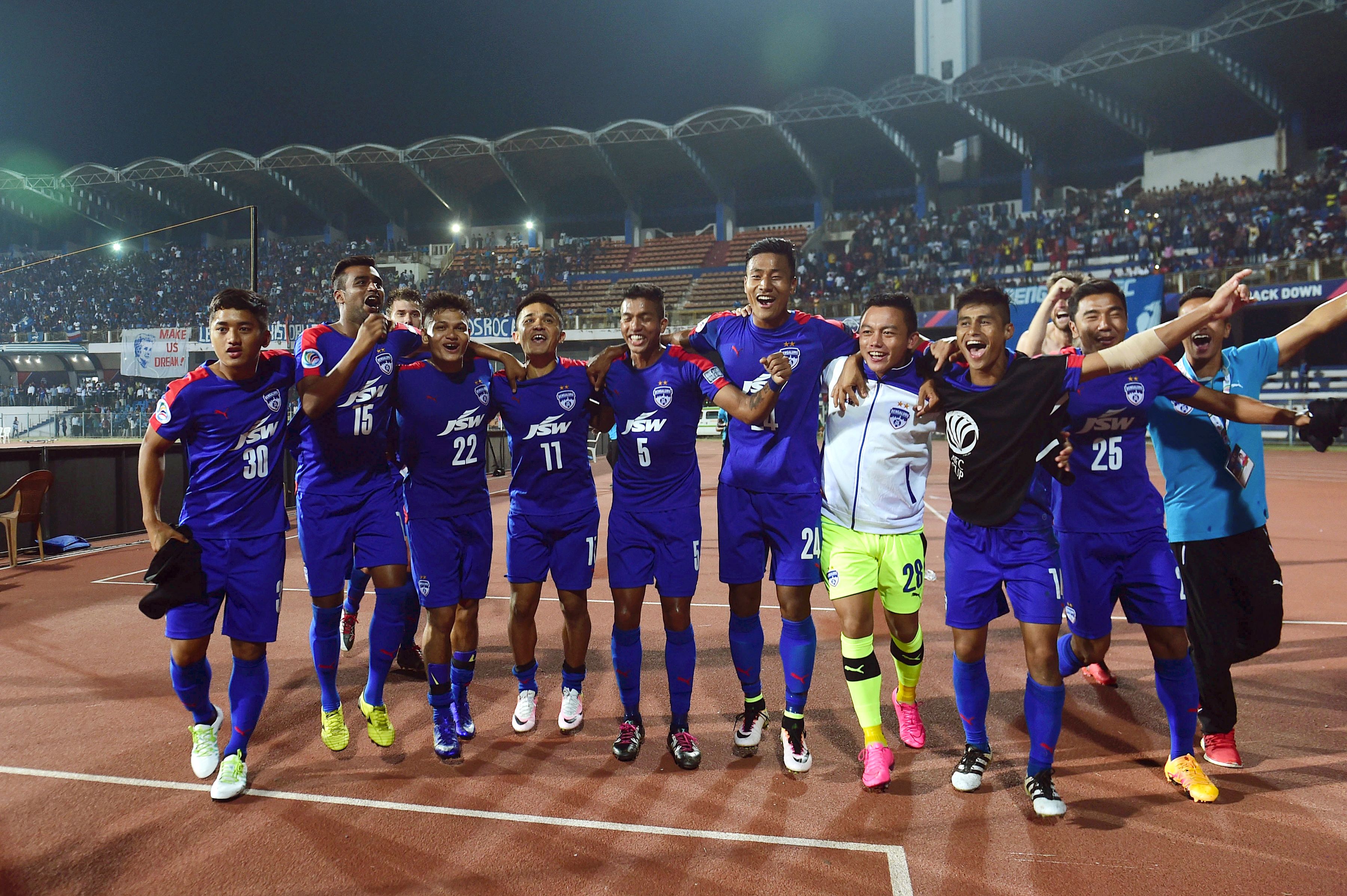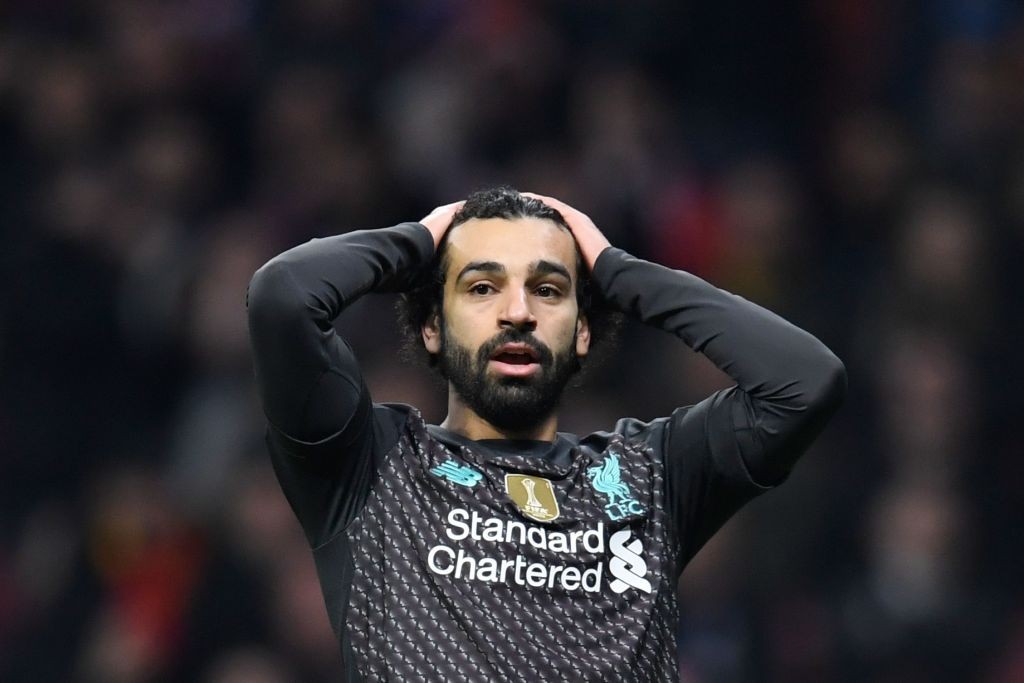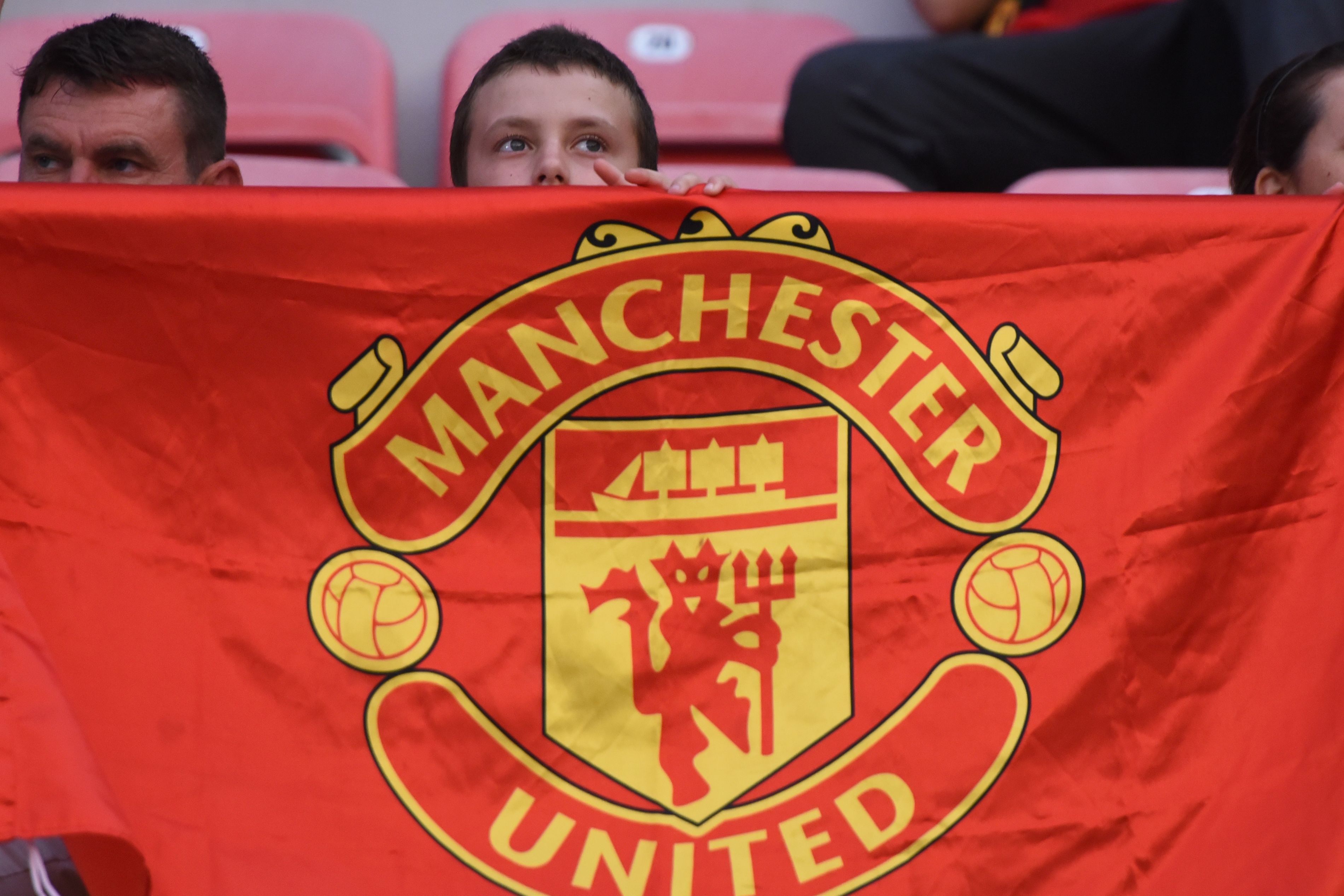League football has been prevalent in India for over two decades and yet it took a team instituted just three years ago to set out and challenge for unprecedented continental glory in the final of the AFC Cup in November. The Hard Tackle attempts to chart this remarkable growth of the new pride of Indian football, Bengaluru FC.
Dateline : Oct 19, 2016. Having managed to hold the defending champions, Johor Darul Takzim, to a 1-1 draw in the first-leg in Malaysia, all Bengaluru had to fathom was a goal-less stalemate at the Kanteerava Stadium to seal their progress through to the final of the AFC Cup. However, in a disastrous start, the Malaysians took the lead in just the 12th minute owing to a poor clearance from Amrinder Singh that Safiq Aslam duly capitalized on.
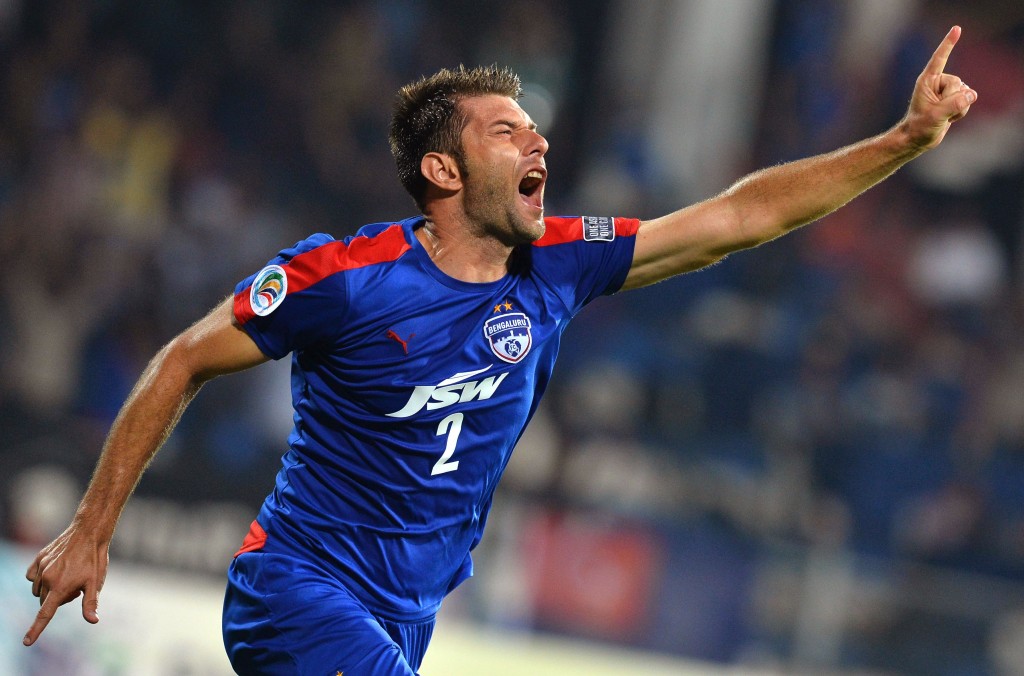
From there-on, one would expect an experienced campaigner of the likes of Johor to take the game by the scruff of the neck and finish off the little fight left in ‘minnows’ Bengaluru. Instead, in a turn-around of cinematic proportions engineered fittingly by a brace from captain Sunil Chhetri, Albert Roca’s side took the lead for the first time in the tie and were in pole position to cause a major upset in the competition. Juan Antonio’s 76th minute strike settled the fixture once and for all and sealed a historic progress through to the AFC Cup final.
It was the first time in the country’s league football history had a team gone this far in a continental spectacle and it was a feat achieved by a side that was no more but a fragment of imagination little over three years ago.
JSW – The FSG of Indian Football?
JSW are credited with being the brainchild behind the inception of Bengaluru FC in 2013. The club was brought to existence as part of the All India Football Federation’s (AIFF) efforts to bring in corporate investments to the sport in India and also spread the popularity of the game beyond the usual hot-spots like Kolkata, North East and Goa. The Federation decided to open up spots for two new clubs to be directly included in the 2013-14 season of the I-League. In the end, JSW’s bid for a Bengaluru based club took the honours with the owners promising a venue ready for the FIFA U-17 World Cup in 2017 and the establishment of youth academies promoting the I-League and Indian football.
The influx of corporate investment was a crucial step forward for the AIFF in commercializing the league and strengthening the roots of Indian football further. JSW took a leaf out of the book of clubs based in Europe and sought to adopt a similar structure to Bengaluru FC. A strong community focus, branding the club’s identity, merchandise and a well established youth football system were the ideals the owners put to place as soon as they earned the rights to join the I-League.
The club then appointed former Manchester United player and Blackburn Rovers coach Ashley Westwood as their new manager in a bid to imbibe his European footballing expertise and help the smooth transition and growth of the club. JSW modeled themselves around the world famous Fenway Sports Group (FSG), an American sports investment group that owns the Boston Red Sox and Liverpool FC among other minor sporting franchises in the United States. The initiative by the Sajjan Jindal-led organization heralded a new era for football in the country as similar entities came out to pump in their investment into the sport when the Indian Super League came calling.
The Architect – Ashley Westwood (2013-2016)
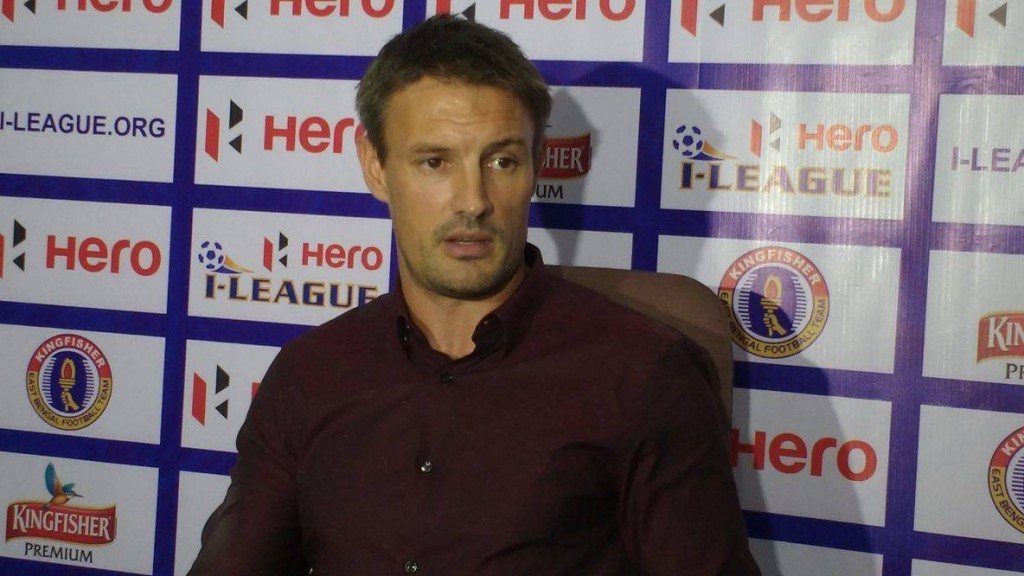
For a club structured around European footballing principles, it was fitting that a person of Ashley Westwood’s pedigree was installed at the helm of managerial affairs at the club. The 40-year-0ld had been through the grind in the lower leagues of the English football set-up and was expected to have a fair idea of Bengaluru FC’s ambitions and the means to put them into action.
He along with a set of designated ‘talent scouts’ set out to building a team in time for the 2013-14 campaign with Westwood using his European influence to sign up two foreign recruits in former Premier League defender John Johnson and former League Two defender Curtis Asano. A string of smart buys like that of Mumbai Tigers’ Thoi Singh, Sunil Chhetri and former Salgaocar striker Sean Rooney meant Bengaluru were well stocked in the attacking department going into their debut season.
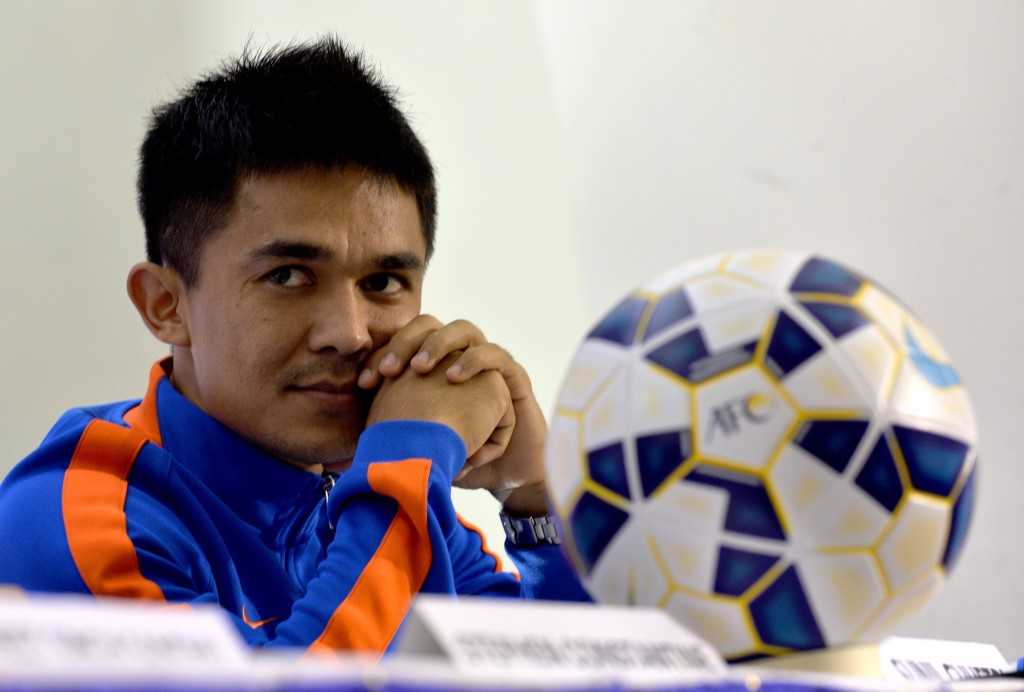
The Blues were the surprise package of 2013-14 taking the I-League by a storm with a string of impressive results as they sealed the title in the penultimate game of the season courtesy of a thrilling 4-2 victory over Dempo. Star striker Chhetri finished the campaign as top scorer with 14 goals to his name with Bengaluru FC sweeping the end-of-season honours owing to their brilliant debut campaign in the Indian top flight division. The victory also sealed a passage into the qualification round of the 2014-15 AFC Champions League for Ashley Westwood’s side failing which they would compete in the AFC Cup. Having faltered at the qualification stage of the Champions League, the Blues were restricted to participation in Asia’s second tier club competition and had progressed all the way through to the Round of 16 that year before receiving their marching orders.
However in a 2014-15 season when the club made waves in the continental circuit, Bengaluru failed to defend their domestic crown as Mohun Bagan edged them to the title on the final day to secure their first I-League trophy. The Blues however found solace in a maiden Federation Cup triumph with a 2-1 victory over Dempo handing them their first taste of success in India’s premier domestic cup competition. Revenge for the league disappointment however, came the following season for the Blues as they inflicted a similar heart-break on Mohun Bagan to take home their second I-League crown in just three years since their inception. The Kolkata-based club were well and truly on course for the title sitting top of the league for the majority of the 2015-16 season, only to falter in the business end of the campaign.
However in the highs of victory lay a bitter pill to swallow for the Blues in the form of coach Ashley Westwood’s departure. The Englishman was widely credited as the architect of Bengaluru’s remarkable growth to national and continental prominence. Westwood left the club on mutual consent in pursuit of bigger challenges and needless to say, he left behind a solid foundation and a blossoming project for his successor. The 40-year-old left the club with a glowing resume having guided a newborn club to two league titles, a Fed Cup and an unprecedented knockout appearance in the AFC Cup all in just three years.
The Future – Albert Roca (2016-Present)
To match up to the astronomical standards left behind by Ashley Westwood was always going to be a telling task and it was former Barcelona coach Albert Roca who picked up the baton from the Englishman with an agreement to take the Blues to greater heights in continental competitions while maintaining their domestic supremacy.
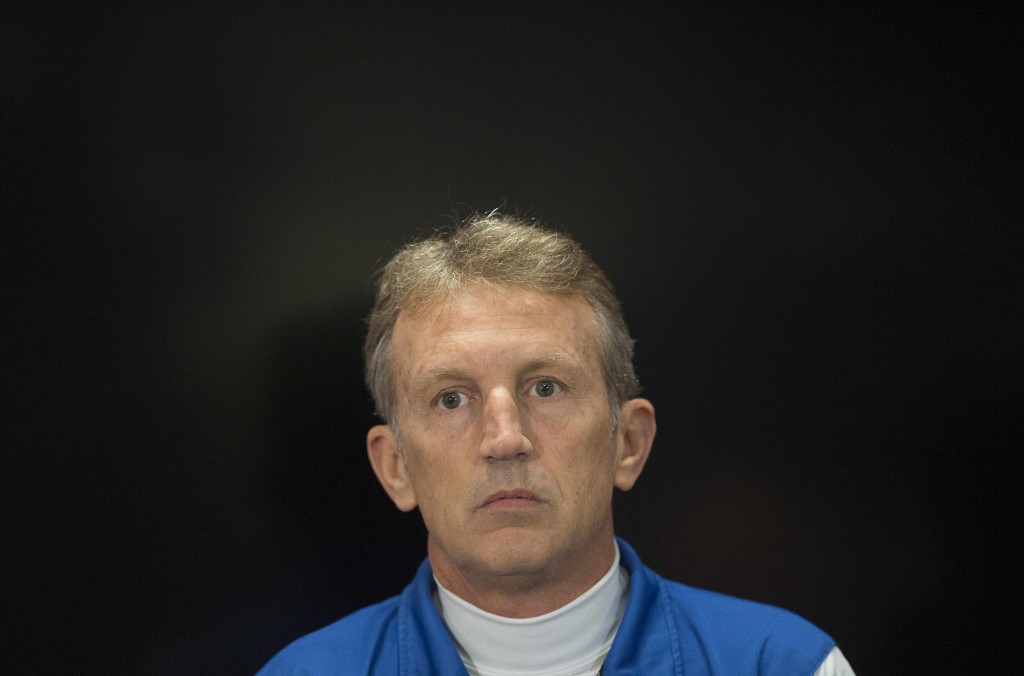
The Spaniard has retained the spine of the Bengaluru line-up that was so successful under Westwood and has already well surpassed the expectations of the management and supporters with their progress to the final of the AFC Cup. The Blues outdid themselves with a progress through to the semi-finals itself and with defending champions Johor standing in their way of a maiden final, many felt the fairytale, for what it was worth, would meet it’s end at the hands of the Malaysian giants. However in an exciting tie, Bengaluru produced a gritting and spirited display to upstage the Champions against all odds and secure their ticket to Doha for the final on November 5th.
The boss will assume league football duties only when the I-League kicks-off in January but his progress with the team during the AFC Cup has proved to be an exciting prologue for bigger and better chapters to come for Bengaluru in the future.
What are the challenges ahead for Bengaluru FC and Indian Football?
Indian football is in cross-roads at the moment with the presence of the traditional I-League and the privately funded Indian Super League. But the leagues have been competing for time and prominence and there are talks of a potential merger that could work wonders for the sport in the country. The ISL has brought a commercial angle to the game in the country and has caught the attention of the fans but it is the I League that still offers more playing time to the Indian players and still remains the FIFA recognized league. Though it is still unclear as to when and how the merger will take place, one thing that is certain is that the establishment and growth of the JSW sports owned club will serve as a blueprint for other teams entering the Indian Football arena regardless of whether it is the I-League or Indian Super League.
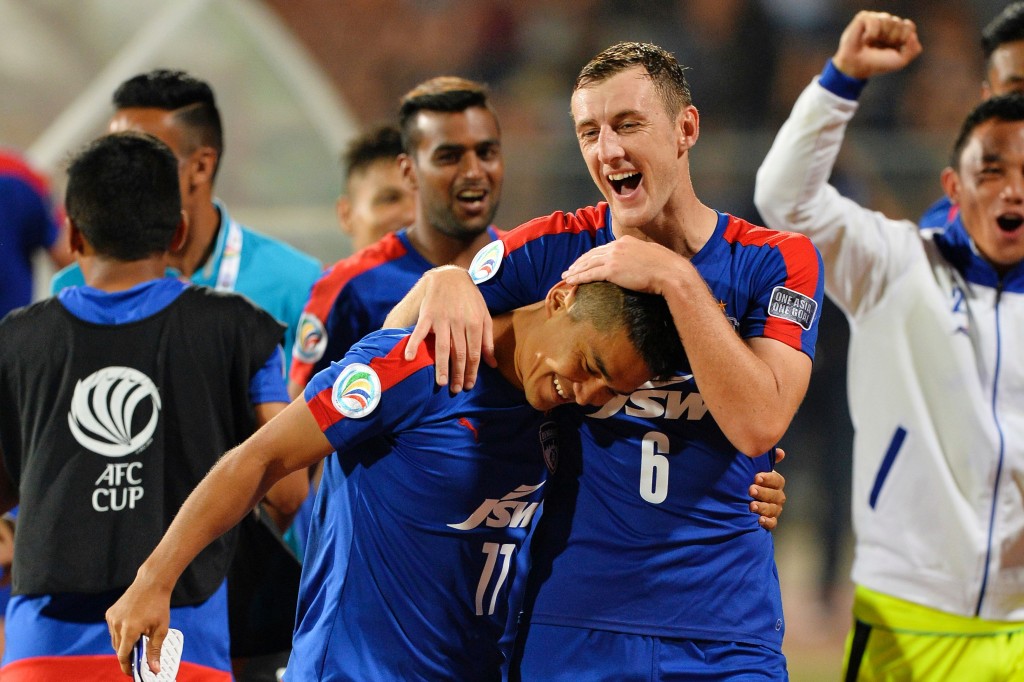
The merger is beneficial to AIFF because it’s two major leagues as a union will have a larger base of clubs under their umbrella and hence ensure greater outreach. Furthermore, the increase in the number of clubs will pave way for a longer duration of the regulation football season which in turn will improve the competition and will keep the players well conditioned throughout the year. Both the ISL and the I-League last for a mere three and four months respectively which is a far cry from the rigourous footballing schedule in place at Europe. It also doesn’t help improve the level of Indian football players if they aren’t keeping themselves in the thick of action throughout and developing their game. While the comparison with more established leagues in other continents may be an unfair comparison, it is atleast a suitable standard that the Indian football circuit should resolve to achieve in the long term.
If the Indian National team harbours ambitions of competing at the international level soon, it’s domestic league model needs restructuring with each club involved, laying a strict emphasis on a strong youth academy. While these are testing times ahead for the sport in the country, the growth of Bengaluru FC and the general footballing scene in India is a source of encouragement for everyone involved with the game and one can only hope for better things to come in the years ahead.
